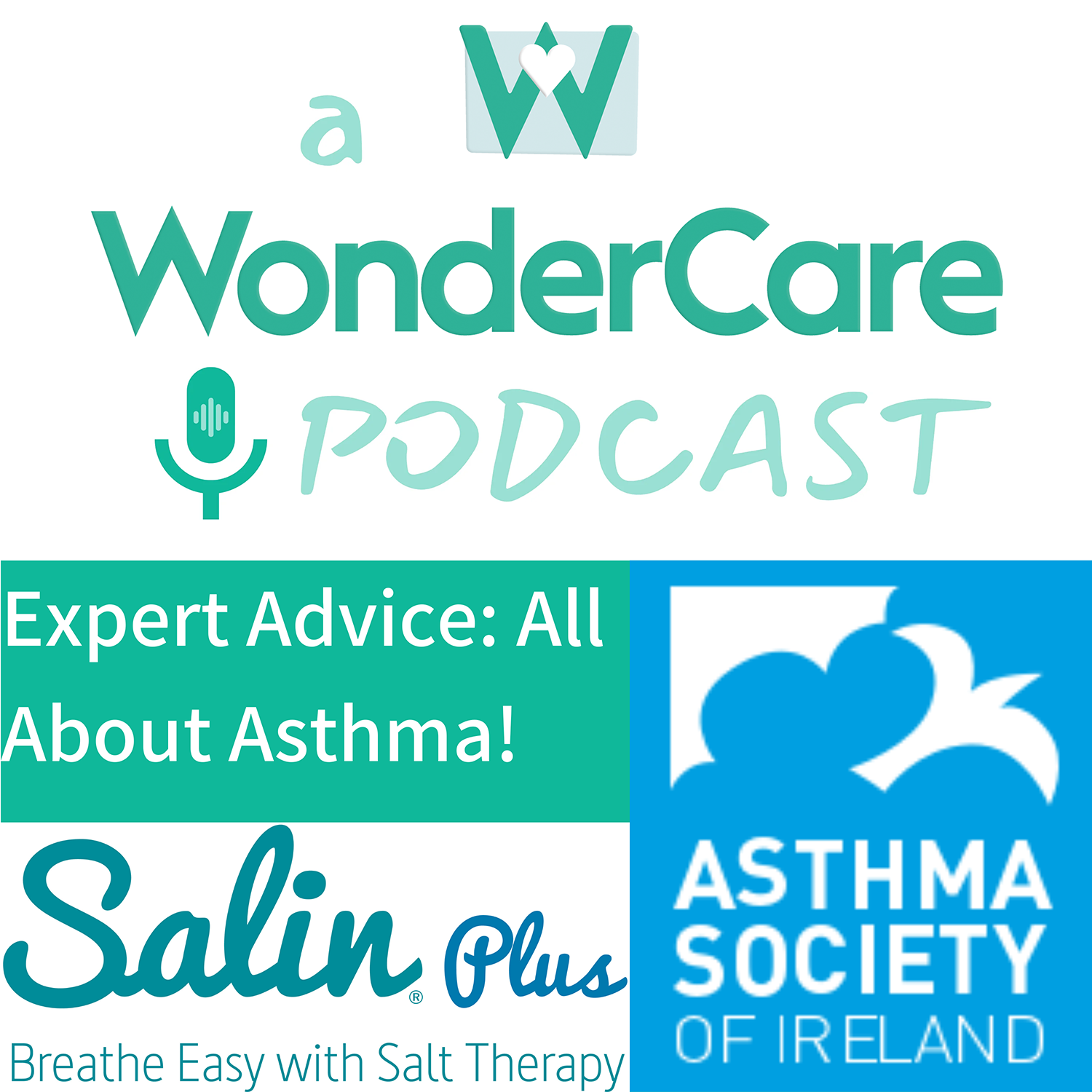Episode Transcript
Speaker 1 00:00:02 Hello and welcome to a Wonder Care podcast. I'm Sheena Mitchell, pharmacist and mom of three. I combine healthcare and practical advice to support you on your parenting journey. This week I'm talking all about measles. It's been a few stories about measles in the news recently, and so I wanted to explain to you why this is happening and why it's a topic that we all should be aware of. I'll also be explaining the symptoms of measles and what impact it can have on your child's health, short term and long term. After that, of course, I'll be discussing the mmr. I'll be giving you loads of information on its efficacy and answering a lot of common questions that come up about getting it. I'm addressing a lot of the questions that have been asked on my Instagram, which is at Wonder Care underscore irl. So why am I talking about measles?
Speaker 1 00:00:53 Now, there's been two recent statements that have been made by the Health Protection Surveillance Center. The first was on the 31st of March where the HSE urged patients to make sure their children are up to date with their MMR vaccines before traveling at the time of the Easter break. It's not normally a warning that they put out, so why did they advise of this at that time? Well, measles is a highly infectious disease, and measles cases are rising internationally already this year in Europe, there's been more cases than in the whole of 2022. According to the E C D C, 242 cases were reported in 12 EU countries between January and April this year, these occurred in Austria, Belgium, France, Germany, Italy, Poland, Romania, Slovakia, and Sweden. I'm listing the countries because some of these are common holiday destinations. Then up to the 14th of June, a further 22 cases were reported.
Speaker 1 00:01:46 Four cases have occurred in Ireland. So far this year. There's been one reported NIS related death in the Netherlands. This year, there are thousands upon thousands of cases occurring in countries like Yemen, Pakistan, Somalia, Afghanistan, Indonesia, India, and more. The E C D C assessment is that COVID has led to a decline in case reporting worldwide and recommends active surveillance, public awareness, and higher vaccination uptake to form a proper response to possible increases in the number of cases and outbreaks. So that brings us to the second statement from the H P S C. On May 24th, it announced that measles had been added to the list of infectious diseases requiring immediate notification to the hsc. This means now that it is the law for doctors to urgently report suspected cases so that immediate outbreak control measures can be put in place. These kind of measures are something we are all now very familiar with.
Speaker 1 00:02:43 Post pandemic such as isolating the patient and they're unvaccinated contacts. The World Health Organization have made it clear that measles elimination is under threat and that hard fought gains can be easily lost without sustained attention where children are unvaccinated outbreaks occur. So today I want to share some information on two things. First of all, what is measles and its symptoms and why it needs to be taken seriously? And second of all, the vaccine we have available to us to protect ourselves and our children from it. So what exactly is measles? Measles is a highly contagious, serious airborne disease caused by a virus that can lead to severe complications and death. Measles is not just a little rash. Of course, common symptoms typically include a high fever, which can go right up to 40.5 degrees Celsius, a cough, runny nose, red watery eyes, and the rash, which breaks out three to five days after the symptoms begin.
Speaker 1 00:03:44 But the statistics to show that it can be serious are genuinely frightening. Around one in four people who get measles will be hospitalized. One in 1000 cases will develop brain swelling due to infection called encephalitis, which can lead to brain damage. One or two out of every 1000 people who get measles will die even with the best possible care. These are really scary statistics for a preventable disease. Some more statistics which aren't really any more reassuring are that seven to nine out of a hundred children will develop an ear infection with measles that can result in hearing loss. Eight outta a hundred will get diarrhea. One to six out of every hundred will get pneumonia, which is the most common cause of death from measles and children. Measles can also cause the destruction of the cornea, which is the outer layer of the eyeball. This can lead to blindness, and finally, several years after having and recovering from measles, a rare but fatal brain complication can occur called subacute sclerosis pan encephalitis.
Speaker 1 00:04:49 It really is a lot and something that we haven't had to be aware of because measles wasn't circulating, and that is down to a global uptake of the mmr. I just want to interrupt this episode for one little second. Okay. More than one little second, but not a lot of seconds. Summer is here and it's definitely my favorite season. The only downside is all of the circulating dust spores and pollen that can make life miserable by affecting your sleep and respiratory health. That's why I'm so delighted that Salon Plus are supporting this season of Wonder Care podcast as the Salon plus device filters these dust and pollen particles out of the air when used every night in your bedroom and circulates fresh clean air for improved sleep and comfortable airways. I cannot believe we're on season five. Where is the time going anyway? Back to the pot.
Speaker 1 00:05:41 Okay. As parents, we obviously want to be aware of the symptoms and what to look out for. On top of the regular flu-like symptoms of fever, runny nose, dry cough, sneezing, sore eyes, your child may develop small, white or blue gray spots in their mouth and throat. These are known as cop complex spots. These spots usually are present before the typical skin rash occurs. I'll put some photos on my Instagram so that you can see what they look like, and I'll save a measles highlight so that you can reference it anytime you need. The skin rash typically appears two to four days after the initial symptoms occur, and it can last for up to about eight days. It can be hard to differentiate measles rash from other childhood rashes, but it does usually start at the top of the head and works its way down the body.
Speaker 1 00:06:30 It often starts as small spots which quickly get bigger and then join together. I'll post a selection of measles pictures in my highlights. If you suspect measles at all, it is essential that you contact your gp. Of course, in the meanwhile, fever and routine symptoms of measles can be treated like a flu using paracetamol and ibuprofen as appropriate for your child. Dry cough remedies can be given depending on your child's age, and a big priority is to ensure that they remain hydrated. I'll cover dehydration in an upcoming podcast episode. Whilst, of course, treating the symptoms is sensible, it is crucial to contact your GP because they'll be able to monitor your child for complications. The people who are most susceptible to measles and its complications, our children under one year of age, pregnant women and people with immunodeficiency, okay, it's time to talk about the vaccine.
Speaker 1 00:07:20 The MMR vaccine was introduced in 1963. At that time, measles epidemics occurred every two to three years and globally caused an estimated 2.6 million deaths every year. We are lucky to have a safe and cost effective vaccine at our disposal provided for free under the state immunization program. However, globally 128,000 people still died from measles in 2021, and most of these were children under five. The World Health Organization state that the volume of deaths that's still occurring globally is as a result of only 81% of the world's children having received their first dose of their vaccine by their first birthday, and only 71% of the world's children receive their second dose at all to protect ourselves from measle outbreaks. The World Health Organization says that we need 95% of all children to receive both doses of the vaccine in Ireland. We are falling short of the 95% target by around 5%.
Speaker 1 00:08:24 This leads to an opportunity for measles to penetrate our communities. There is no doubt that every parent wants to keep their child safe and the MMR is the safest way to do this. If you're unsure if your child received the MMR or yourself even contact your GP To confirm the measles vaccine was introduced in Ireland in 1985. The number of cases dropped from 10,000 that year to 201 only two years later in 1987. These vaccines are really effective. So some more information and facts about vaccination children should be vaccinated at 12 months of age and again in primary school or at their GP at four to five years of age. I did receive questions about whether your child will be considered vaccinated after their first dose, and yes they will. But to maintain a high effective level of immunization, they do need to receive that second dose or else their or else the efficacy of their vaccine will not be maintained.
Speaker 1 00:09:23 So if your child received one but not both vaccinations, they should receive the second one as soon as possible. It is never too late to be vaccinated for measles. In the past, some kids missed out on vaccination due to an egg allergy, but now we know how rare a reaction is and it actually can be given to children even if they have a severe egg allergy. You just have to flag it to your doctor or a nurse. There was a huge amount of serious misinformation in the late 1990s about a link between the MMR and autism. This has been completely disproven. It is wrong information, but as a result of that, there may be adults out there who are aged 20 to 25 who have not been vaccinated, so I'd urge any of those to check with their gp. Obviously, this is a choice your parents would've made, not you as an infant, so you can check back in with your parents as well.
Speaker 1 00:10:15 Please be reassured that extensive research involving over half a million children showed that levels of autism are unchanged by vaccination status. In fact, Dr. Wakefield who made the false claims and representations between the link of the vaccine and autism was struck off the medical counsel as a result in 2010. So the reality is that with all vaccinations, minor side effects can sometimes occur. Examples of these are discomfort or redness at the injection side that affects around one in 10 kids and a rash can occur in about one in 20 kids after the measles vaccine. Indeed, this happened to my own children after vaccination. It's important to note that this goes away by itself within six to 12 days, and it is not contagious. One in 20 kids may experience swollen glands or joint pains after vaccination. When you compared these risks to the risks that measles itself bring these pale into insignificance.
Speaker 1 00:11:10 I really don't want to sound like a scare merchant. It's just that measles outbreaks are currently happening in Europe, and our vaccination rate has dropped about 3% in the last few years. This is probably most likely due to the pandemic, and I just wanted to paint a picture of the bigger view and highlight that now is a good time to check over your vaccination records and to make informed decisions. I really hope that you found this episode helpful. I'd be delighted if you could give us a little review on Apple Podcasts or Spotify and feedback course is always welcome. In addition to any questions you may have by contacting me through Instagram and you can find me at Under Care irl, thank you so much for listening. I'll talk to you again soon.


